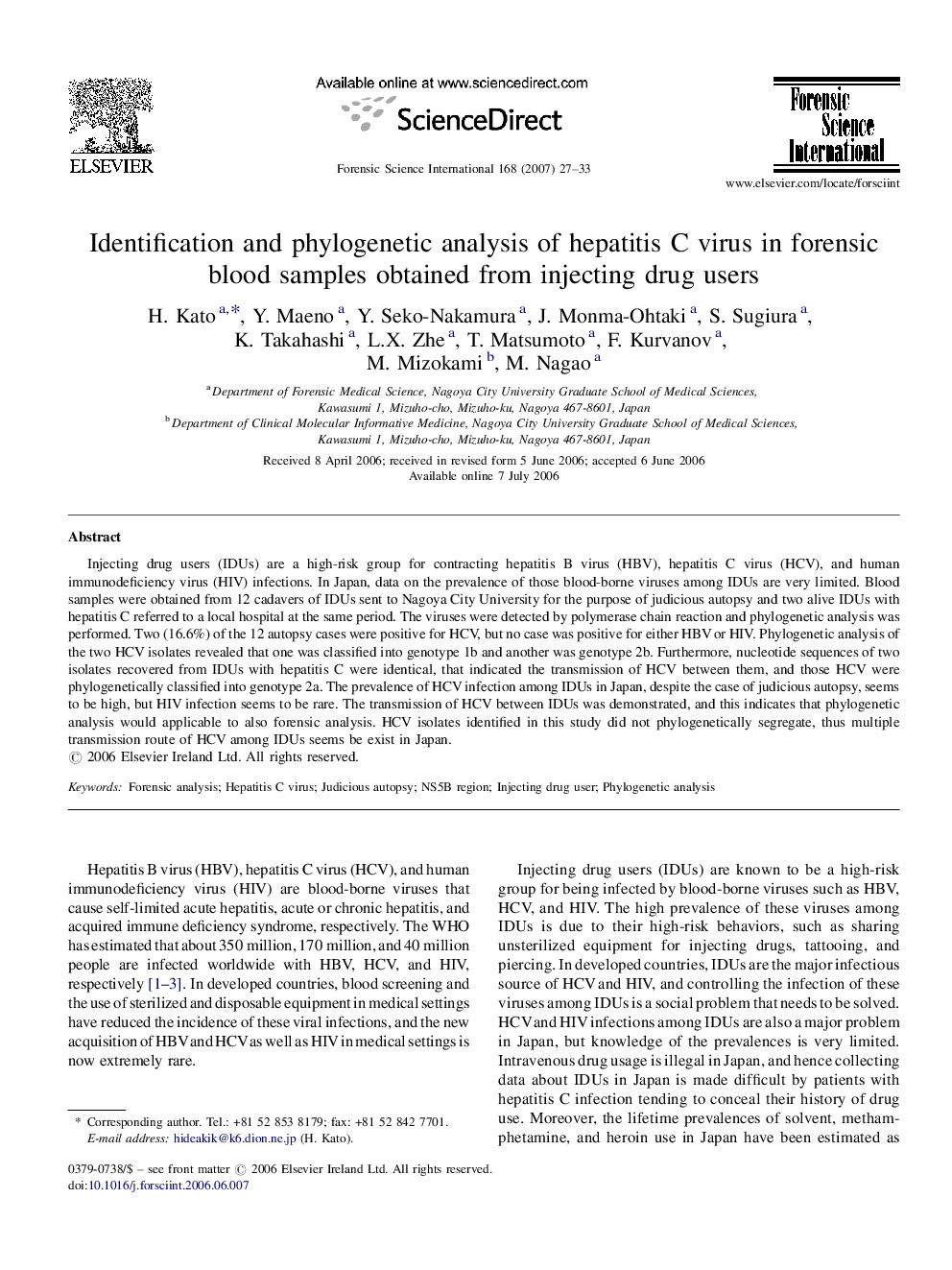| Article ID | Journal | Published Year | Pages | File Type |
|---|---|---|---|---|
| 97969 | Forensic Science International | 2007 | 7 Pages |
Injecting drug users (IDUs) are a high-risk group for contracting hepatitis B virus (HBV), hepatitis C virus (HCV), and human immunodeficiency virus (HIV) infections. In Japan, data on the prevalence of those blood-borne viruses among IDUs are very limited. Blood samples were obtained from 12 cadavers of IDUs sent to Nagoya City University for the purpose of judicious autopsy and two alive IDUs with hepatitis C referred to a local hospital at the same period. The viruses were detected by polymerase chain reaction and phylogenetic analysis was performed. Two (16.6%) of the 12 autopsy cases were positive for HCV, but no case was positive for either HBV or HIV. Phylogenetic analysis of the two HCV isolates revealed that one was classified into genotype 1b and another was genotype 2b. Furthermore, nucleotide sequences of two isolates recovered from IDUs with hepatitis C were identical, that indicated the transmission of HCV between them, and those HCV were phylogenetically classified into genotype 2a. The prevalence of HCV infection among IDUs in Japan, despite the case of judicious autopsy, seems to be high, but HIV infection seems to be rare. The transmission of HCV between IDUs was demonstrated, and this indicates that phylogenetic analysis would applicable to also forensic analysis. HCV isolates identified in this study did not phylogenetically segregate, thus multiple transmission route of HCV among IDUs seems be exist in Japan.
